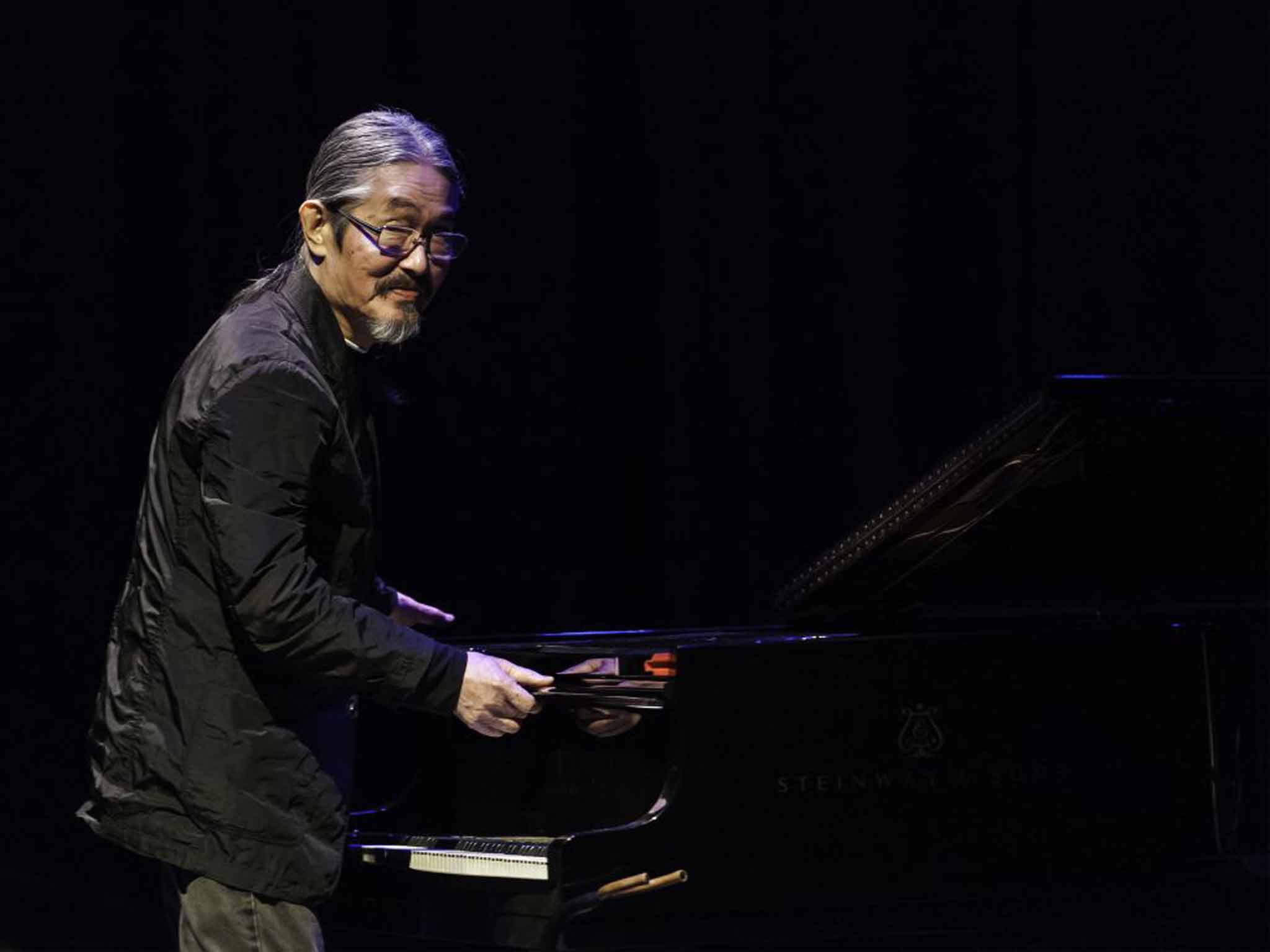Masabumi Kikuchi: Pianist who worked with Gil Evans and Miles Davis
A musician who approached jazz harmony in a highly original, sometimes idiosyncratic way, he was also part of a case that changed US property law

Masabumi Kikuchi believed that he was transmitting music, rather than creating it. His gentle mysticism was premised on the belief that all music already existed, entire and perfect, and that it was the duty of the artist “by falling into a trance”, to bring it across accurately and in detail.
Anyone listening to his 2012 CD Sunrise, or any of the records made under the group name Tethered Moon with bassist Gary Peacock and drummer Paul Motian, will recognise how devotedly and selflessly he directed himself to that end. It perhaps cost him dear in career terms: though he turned professional in the 1950s and continued working into his seventies, very often with Motian's group, his music was too elusive and personal, his personality too self-effacing, for mainstream success, and in fact one of his most lasting contributions was the establishment of a principle in New York property law that has affected many artists in similar positions.
He was born in Tokyo in 1939 and educated at Tokyo Art College High School. After graduation he was recruited by Lionel Hampton, one of a number of popular US bandleaders passing through Japan. He formed a quintet with trumpeter Terumasa Hino, their activities interrupted when he won a scholarship to Berklee in the US, returning to Japan in 1969 to develop a career as accompanist to visiting stars. He moved to the US permanently in 1973, having formed a relationship with the like-minded Peacock, who had been a key figure in the avant garde of the previous decade.
Also known as Poo-Sun, or familiarly as Poo, Kikuchi recorded under that name for Phillips in 1970, initiating a steady stream of discs that saw him approach jazz harmony in a highly original, sometimes idiosyncratic way, using non-functional tonalities and pure sound colour alongside and sometimes instead of conventional “changes”.
In the early 1970s, he was associated with bandleader and arranger Gil Evans, who brought him to the attention of Miles Davis. The most intriguing items in the Kikuchi discography are the unreleased recordings and rehearsal sessions he made during the trumpeter's period of creative withdrawal in the mid-1970s. Davis considered the Japanese pianist to be a deep thinker and a “cool, crazy little cat”.
At the end of the decade, inspired by Evans' body of work, Kikuchi formed the Sound Idea Studio, a loose collective responsible for the remarkable recordings Susto and One Way Traveller in 1981 and 1982; both discs remain seriously underappreciated. Various groups and associations kept him active through the decade, with a broadening interest in electronic and synthesised music but it was with Peacock and Motian, and as Tethered Moon, that he made his most distinctive and successful recordings, exploring not just his own ideas but the works of Kurt Weill, Edith Piaf and operatic material.
In the later 1970s Kikuchi began to rent a loft on New York's West 20th Street. However, a health equipment company moved in overhead, causing noise and water damage. Kikuchi sued his landlord, claiming that enforced inability to use a large proportion of the more than 1500 square foot space constituted constructive eviction. After a decade of litigation, the New York Appellate Division established a principle of rate and rent reduction in proportion to the area of property unusable as a result of another's actions. It was a curious and unwelcome distraction for an artist who lacked the fiery instinct for resistance of a Charles Mingus or the stoicism of an Ornette Coleman, but Poo took his day in court with dignity and some humour, the latter a quality of his musical thinking and piano playing that is often easy to miss on first hearing.
His work had a puckish quality that punctured any claims of profound spiritual significance. When Kikuchi said that music came to us entire and already perfect, he did not intend us to understand that it came with a long face or claiming to announce the meaning of life, but simply its separate and individual joys.
Masabumi Kikuchi, musician: born Tokyo 19 October 1939; died New York 6 July 2015.
Subscribe to Independent Premium to bookmark this article
Want to bookmark your favourite articles and stories to read or reference later? Start your Independent Premium subscription today.

Join our commenting forum
Join thought-provoking conversations, follow other Independent readers and see their replies